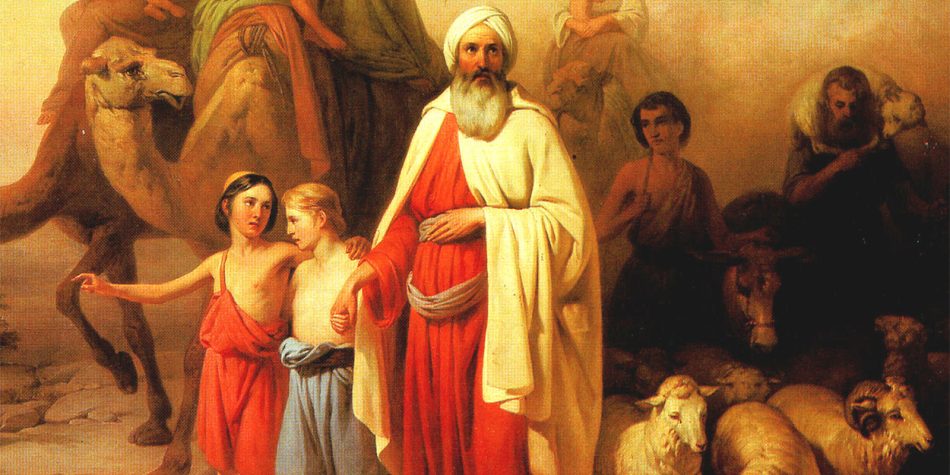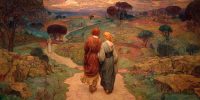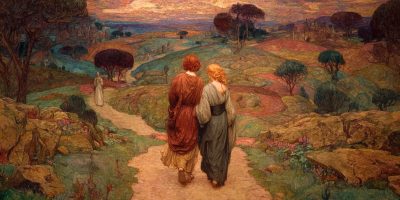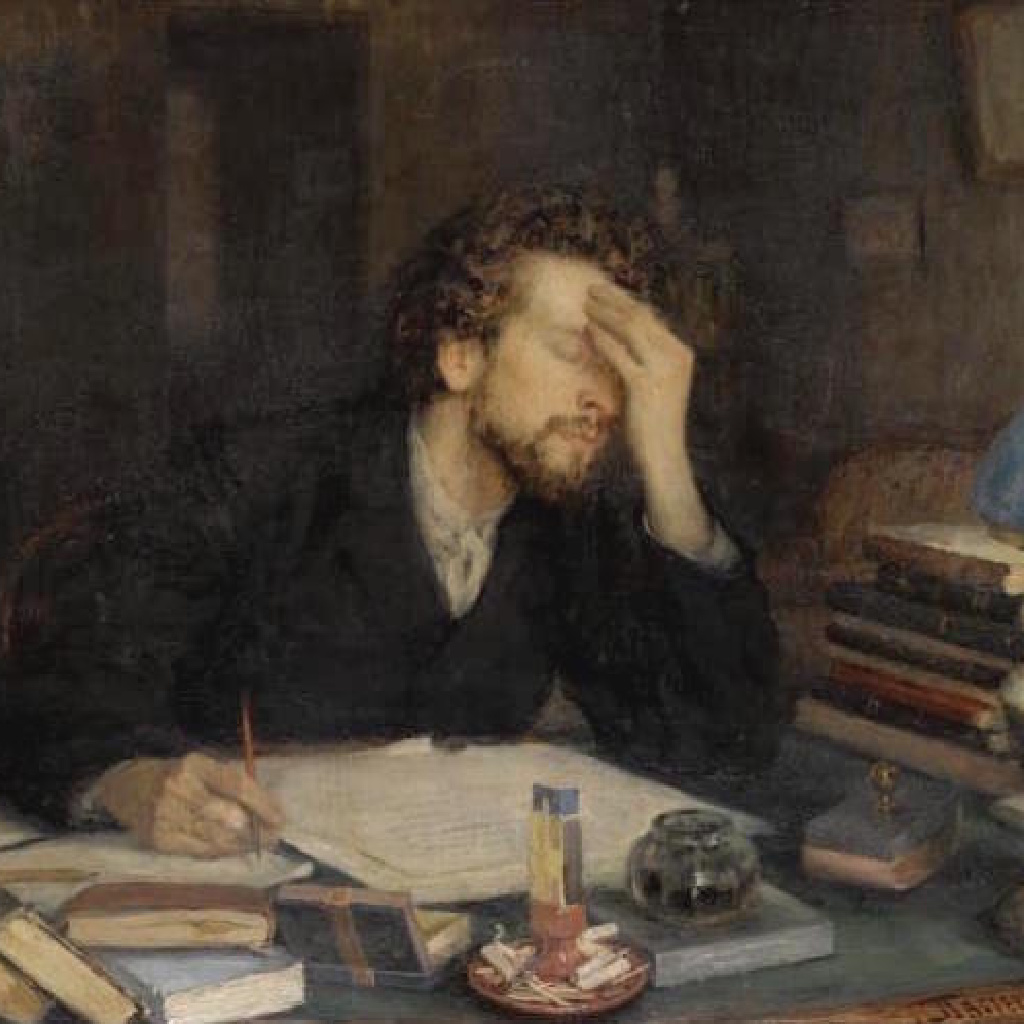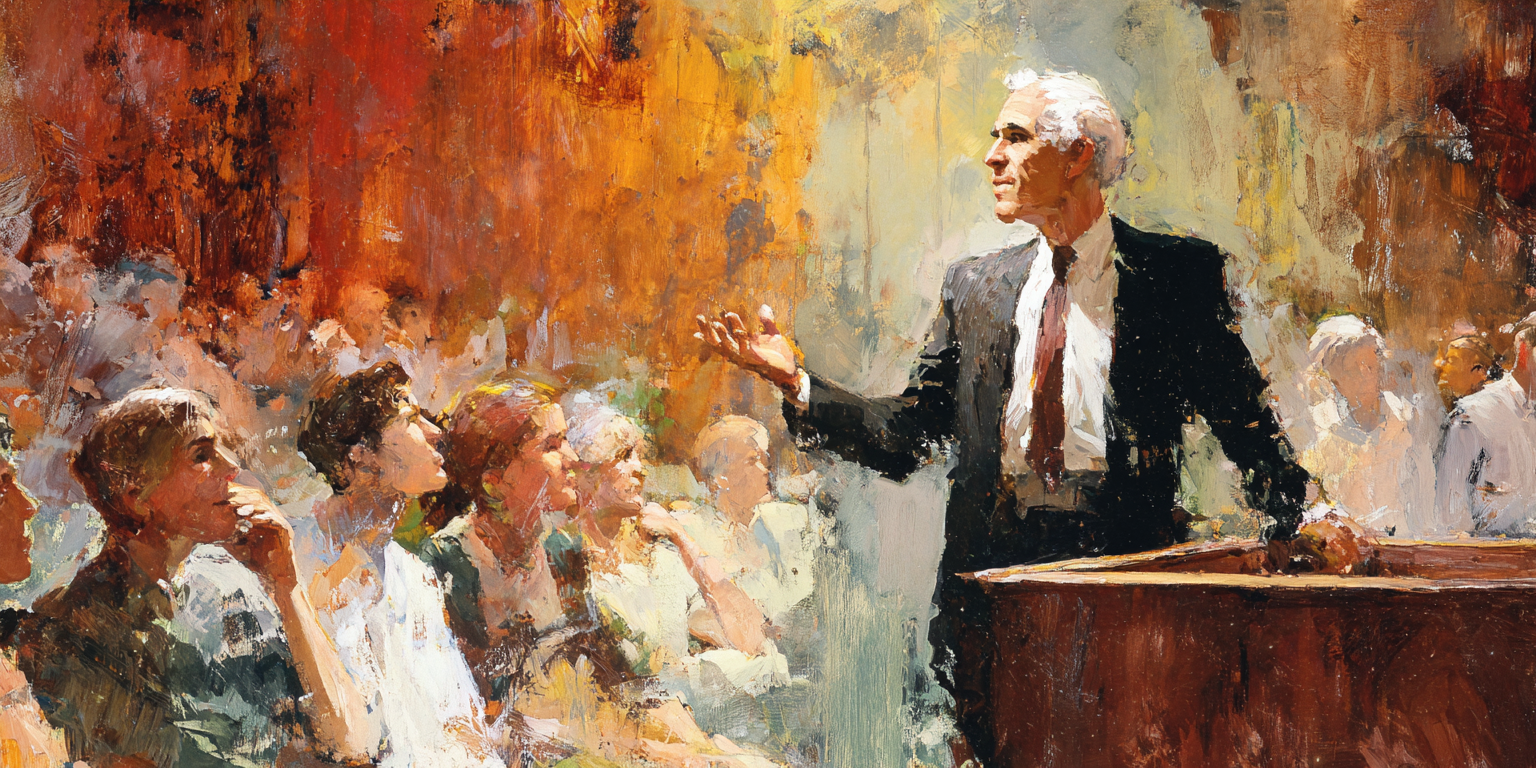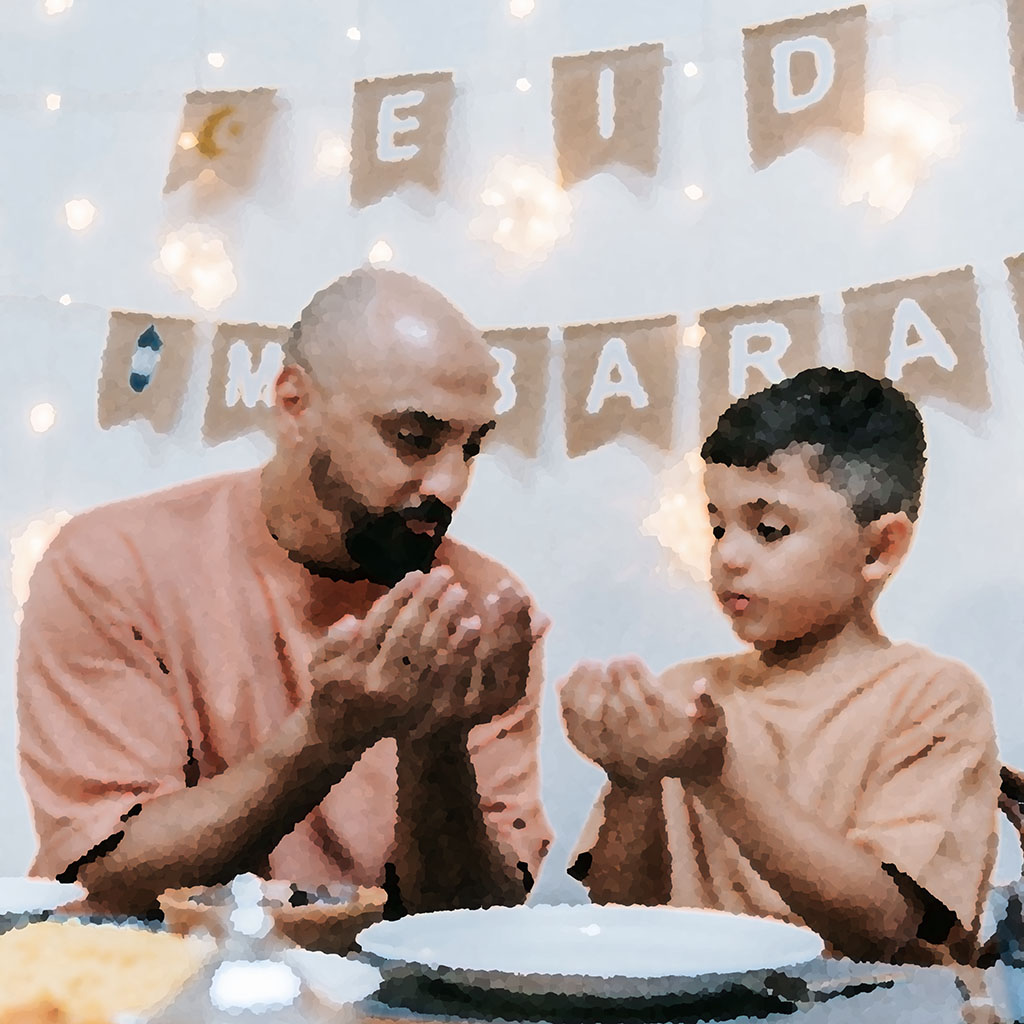Latter-day Saints adhere to what we would call in religious studies, a “thick” religion: a set of beliefs and practices that have emerged from a deep and sometimes controversial historical context that extends deeply below the tip of the iceberg of our lived experience. In discussions of our church history, the Biblical narrative of what is referred to in Judaism as the Aqedah, or “binding” of Isaac by his father Abraham on Mount Moriah, is often invoked to serve as a theological point of reference for some of the most challenging aspects our thick religious worldview, from unsettling episodes in church history to difficult callings and other soul-stretching commitments in the present. Among other contexts, we know the phrase “Abrahamic test” from Truman G. Madsen’s landmark 1971 talk at BYU, and also from Eugene England’s essay on plural marriage, where he offered the explanation that “God apparently uses such a unique and uniquely troubling test because it is the only way to teach us something paradoxical but true and very important about the universe—that trust in our personal experiences with divinity must sometimes outweigh our rational morality.”
While these didactic approaches to the Aqedah are certainly valid and useful, Latter-day Saints as a community would strongly benefit from a more in-depth reading of this story, treating scripture with the maturity that has come to characterize the forthright telling of our own history in Saints and other media. As C.S. Lewis expressed,
If our religion is something objective, then we must never avert our eyes from those elements in it which seem puzzling or repellant; for it will be precisely the puzzling or the repellant which conceals what we do not yet know and need to know. . . . The truth we need most is hidden precisely in the doctrines you least like and least understand.
“Puzzling” and “repellant” are appropriate descriptors of our typical reactions to the idea of God commanding the sacrifice of one’s offspring, and here I hope to explore some aspects of the Aqedah that remain elusive to most Latter-day Saint tellings of the story, but have tremendous resonance to our unique restoration theology of a responsive and suffering God. I maintain that this scriptural narrative does contain, in the words of Lewis, “the truth we need most.” For the purposes of this discussion, I will rely on the Jewish Publication Society translation of Genesis found in the Jewish Study Bible, and Richard Elliott Friedman’s translation in his commentary on the Torah. Brigham Young once taught that our Latter-day Saint belief system “embraces every principle pertaining to life and salvation, for time and eternity. No matter who has it.” In that spirit, I will also draw upon the work of Catholic theologian Thomas Keating, who in a series of lectures entitled Consenting to God as God Is, gives an excellent reading to the Aqedah with insights that closely parallel several important doctrinal concepts in restoration scripture.
The story begins with Sarah’s pain over her barrenness, her inability to conceive a child. In Genesis 16 she attributes this trial to God, and offers Abraham her Egyptian servant, Hagar, for the bearing of children. The resulting pregnancy brings the birth of Ishmael, and with him family tension, as the narrator tells of Sarah’s natural reaction to Hagar’s pregnancy: deep personal insecurity. We are told that Sarah was “lowered in her esteem” (v.4). Verse 5 gives us a window into the strained relationship between Sarah and Abraham, as Sarah lashes out at her husband: “The wrong done me is your fault! I myself put my maid in your bosom; now that she sees that she is pregnant, I am lowered in her esteem. The Lord decide between you and me!” All of this family tension is presented as originating from Sarah’s inner turmoil over the unfairness of her situation; Hagar’s perspective may have been very different than what Sarah is projecting, but it is not offered here. Verse 6 depicts Sarah’s mean-spirited behavior toward Hagar, and how in response, Hagar flees into the wilderness. There, an angel speaks to her and asks her where she came from and where she is going. Upon hearing Hagar’s story, the angel tells her “Go back to your mistress, and submit to her harsh treatment.” Friedman translates this as “Go back to your mistress, and suffer the degradation under her hands.”
An important nuance of the Old Testament text, particularly in the Torah, is its presentation of “angels” that are sometimes spoken of interchangeably with YHWH (whom we refer to using the Latinized name Jehovah). So we have the surprising language in v.13: “And she called the name of YHWH who spoke to her “You are El-roi,” for she said, “Have I also seen after the one who sees me here?” El-roi is translated as “God of seeing,” and the lesson at this point in the narrative is poignant: to the most vulnerable, frightened and marginalized person in Abraham’s cohort is given the privilege of conversing with God.
We might wish that Abraham and those around him had acted toward each other with more generosity; had communicated more; or had simply made any number of choices different from the ones they made.
Sarah has grown tired of waiting and hoping for a son, so when she is promised a son, she laughs. But she does bear a son, and with the passage of time, the text says that Sarah notices Ishmael “playing,” which numerous translations interpret to mean that Ishmael was engaging in mocking behavior toward Issac. Sarah is bothered by this, and insists that Abraham cast Hagar out from the camp. Abraham does so, and in his grief over the situation, he is reassured by God, who promises in v.13 that Ishmael will survive this ordeal, and thrive: “As for the son of the slave-woman, I will make a nation of him, too, for he is your seed.” In one of several extremely consequential lapses in communication within Abraham’s family, the text offers no indication that Abraham communicated this promise to Hagar, who certainly would have benefited from some perspective and encouragement in her coming ordeal.
Hagar and Ishmael leave, and when their water runs out in the wilderness, Hagar places Ishmael away from her in order to spare her the pain of watching him slowly die. In v.16, the text offers an image of grief that only a mother can fully appreciate: in Friedman’s translation, ” . . . she sat opposite and raised her voice and wept.” Again, an “angel” speaks to her and tells her not to worry because God has heard the cry of her son. She is then promised that Ishmael will become a great nation, and the magnitude of this promise is another indication that again, it is in fact the Lord speaking to her. Hagar is shown water nearby, and she and her son are provided for in the wilderness.
In chapter 22, Abraham is commanded to sacrifice Isaac, whom God refers to as Abraham’s “only son.” To Abraham, these words must have stung. In his mind, he once had another son, and he is probably constantly reliving and regretting the day he sent Hagar and Ishmael into the wilderness. What does God mean by “your only son”? Does God mean to imply the only son in Abraham’s immediate family, or in this wording is there an ominous possibility that despite the earlier promise, Ishmael has perished in the wilderness?
We are not told of Abraham’s immediate response to the command to kill Isaac, but it is easy to envision Abraham being physically overcome by the thought of what he has been told to do. Isaac and Sarah do not receive this same divine revelation, and Abraham is not told by God whether or how to inform them. It appears that he makes the decision to not tell them. He takes Isaac and a group of men from their community, and they begin their journey. After three days, Abraham tells the rest of the group to stay behind, and he and Isaac begin the ascent up the mountain. In preparation for this trek, Abraham places wood for a burnt offering upon Isaac who, in a verse that will resonate with Christians in later millennia, is now carrying wood up a hill for his own sacrifice. The obvious problem, though, is that they have not brought an animal with them to sacrifice. So Isaac asks “Where is the lamb for the burnt offering?” Friedman makes an interesting observation about the punctuation-free Hebrew text of Abraham’s response:
The last two words can be read as a touching epithet: “God will see to the sheep for the burnt offering, my son.”
But they can also be read as a fearful irony: “God will see to the sheep for the burnt offering: My son.”
Abraham and Isaac arrive at the location, and Abraham binds Isaac. Here again, we lack details. Did Isaac panic and try to flee? Did he try to fight off his father or did he submit willingly? We know nothing aside from the fact that Isaac was bound. And as Abraham draws the knife to complete the sacrifice, an angel tells him to stop. We have no indication that Isaac saw or heard the angel, so his experience may have been that of an exhausted and despairing son, observing his father talking to nothing in particular off in the distance.
The fruits of wrestling with realities of the Aqedah are empathy, perspective.
In Chapter 22, verse 19, we are given the heartbreaking detail that following the dramatic mountaintop reprieve, “Abraham then returned to his servants, and they departed together for Beer-sheba.” There is no mention of Isaac; both Abraham and Isaac come down the mountain, but not together. The moment before the binding is the last time Abraham and Isaac speak directly to each other in the text, and we are led to conclude that there was no ram in the thicket to thwart the sacrifice of that father-son relationship on Moriah. We likewise have no more Biblical dialogue between Abraham and Sarah, and in the next chapter when Sarah dies, Abraham has to go from his dwelling in Beer-Sheba to mourn in Sarah and Isaac’s land in Hebron, because Abraham’s family no longer lives together.
Abraham’s death in Chapter 25 provides us with an emotionally arresting narrative detail, that “His sons Isaac and Ishmael buried him in the cave of Machpelah…” (v.9). We are left to imagine the dialogue between these half-brothers at their father’s burial, knowing that Abraham behaved toward them in ways that, absent the understanding of God’s involvement, must have seemed senseless.
Thomas Keating offers insights into the Aqedah that reflect our own modern struggles to understand:
Abraham’s conscience seems to have been radically changed and liberated from the cultural conditioning of his times by means of this enormous trial. Perhaps on that long journey up the mountain, Abraham began to doubt the accepted practice of his time that condoned and even fostered human sacrifice. Did the God that he knew and whose friendship meant everything to him really require the sacrifice of his beloved son?…
God is sheer love, but it is a love that is not sentimental. It is a love that is trying to share pure and unselfish love with these very human instruments who do not know their right hand from their left, yet have the destiny of participating in the divine life. Consent is the proper attitude and primary response to God, not some kind of action or accomplishment.
The narrative of the Aqedah depicts Abraham as a follower of God who is presented with a series of impossible dilemmas. At numerous points in the unfolding story, we might wish that Abraham and those around him had acted toward each other with more generosity; had communicated more; or had simply made any number of choices different from the ones they made. But ultimately, there are no alternative scenarios we might envision that would guarantee an orderly and happy outcome for Abraham’s family. Observers of the spiritual drama of the Aqedah will all ask the question “Why would God do this?” And the answers to that question will likely differ depending on the spiritual resources of the person asking. Those for whom God is an abstract idea are prone to view this representation of God as arbitrary and cruel. Skeptics of the historicity of the narrative are left to explain why an ancient author, ostensibly motivated by a desire to promote his or her God over other possible Near Eastern deities, would concoct a story that places this God at the center of what reads like an authentic interpersonal trauma among the family of His most faithful follower. Those who have spent time in the refiner’s fire of adversity and have personally found God’s influence there, will be inclined to patiently interrogate this story, explore its depths of meaning, and feel a sense of kinship with its participants; which is how the sages of Judaism have engaged with this narrative for many centuries. The fruits of wrestling with realities of the Aqedah are empathy, perspective, and an appreciation of the wrenching depth of the challenges and paradoxes inherent in a commitment to love both God and neighbor.
It would be the height of spiritual malpractice to teach the Aqedah in terms of simplistic heroes and villains, with Abraham as obedient hero and everyone else failing to meet some standard of spiritual excellence. That approach to theology presents devotion to God in the form of a shock reality TV show, a contest of elimination where spiritual stature is defined by our ability to embrace divine “dares” that are morally excruciating. Abraham is certainly a conflicted leader in this story, and Sarah’s responses to Abraham and Hagar should be viewed with compassion, as reasonable and understandable reactions in light of her context of decades of crushing personal disappointments. The apparent desire for Isaac to maintain distance between himself and his father following the incident on Moriah is likewise a very understandable human response to a traumatic experience that would affect Isaac for the rest of his life. But Latter-day Saints understand that spiritual development continues after death: teaching of the gospel takes place among spirits who see their mortal choices very differently, with a clarity that comes from being free from mortal inclinations that are rooted in cultural pressures and fallen biology. These realities should cause us to rejoice for the possibilities of postmortal healing of Abraham’s family tree, with reconciliation, perspective and new spiritual development that are presently possible for all who participated in the Aqedah’s painful realities during mortality.
These realities should cause us to rejoice for the possibilities of postmortal healing of Abraham’s family tree.
Latter-day Saint theology stands in contrast with mainstream Evangelical Christianity in particular, in our insistence upon distinguishing between the idea of being “saved” in a single moment versus the lengthy and iterative developmental objective of progressing to eternal life, which we define as the type of existence that God enjoys. For that reason, Keating’s reference to “participating in the divine life” is, perhaps inadvertently, an excellent articulation of the Latter-day Saint position. The impossible situation faced by Abraham’s family is thus not an aberration in their journey to understand God; in fact it is arguably one of the very best illustrations of the life that God lives, and the plan that we as preexistent intelligences embraced for our development. In mortality, God’s influence would be felt and communicated among people who would vary in their capacity and their levels of preparedness for spiritual influences. Our choices to follow voices of love, connection, healing, and hope in mortality would take place amid our exposure to forces of entropy, fear, control, and scarcity in biological, social and other forms. The still small voice of God would not always be discernible from the mental and emotional pull of culture. There would be confusion, pain, and catastrophic missteps even among good and compassionate people. To understand God’s life, even the dutiful and obedient would sometimes be required to place upon the altar things, ideas, commitments and relationships that answer the deepest yearnings of their souls. Keating again offers an important insight that we as Latter-day Saints can weave into the narrative threads of our own thick religious story:
The sacrifice of Isaac has become a symbol of the sacrifice of what we most love for the greater love of God…This is a pattern of self-surrender. It is not an abstract process, nor is it a heroic rising to the occasion to put up with some particular difficulty or trial. Rather, it is the classic human experience of love that is overwhelmingly precious, but which is terminated by death or rejection. What we most love can be ourselves or another person. It could also be our job, our role, our nation, our spiritual reputation, or our accomplishments.
We can confidently surmise that in the Aqedah, Abraham was made to understand why God weeps—it is because eternal life sometimes involves sacrifice in the form of soul-wrenching choices where both underlying reasons and neat resolutions are elusive. The theological depths that characterize the narrative of the Aqedah render it unsuitable to be regarded as simply one of many equally-useful scriptural tools for teaching everyday compliance with divine directives. In reality, the Aqedah more properly stands alongside Moses 7, 3 Nephi 17, and Ether 3 as a profoundly strong, load-bearing scriptural pillar of Latter-day Saint theology.
Editor’s Note: Two quotes from C.S. Lewis were previously attributed to Dr. Wendy Ulrich.

